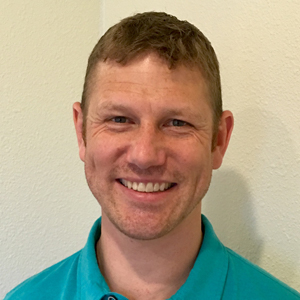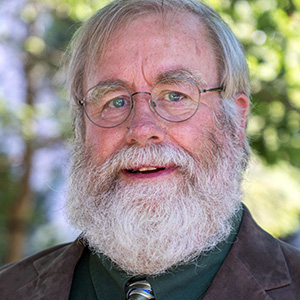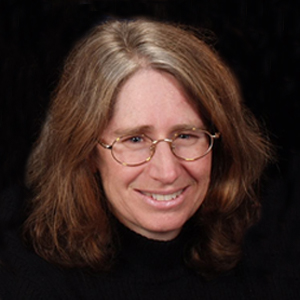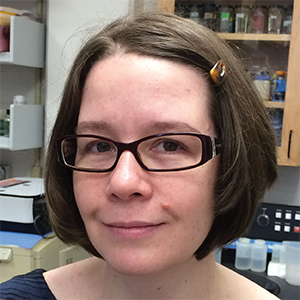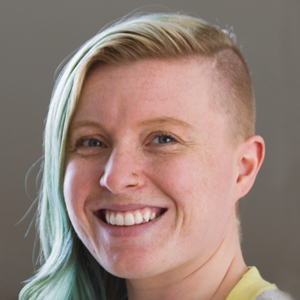Focus on the gap year
We wondered how stepping off the road of higher education influenced people's careers and outlooks on life. Here is what some of our members and affiliates had to say about gap years.
STEM-focused gap years

Gap years are a growing trend in the U. S. They’re not the exclusive territory of high schoolers in search of direction before diving into university studies. At the American Gap Association, the official standards and accreditation agency for gap years, we define a gap year as an experiential semester or year “on” taken in order to deepen personal, practical and professional awareness. Increasingly, students completing their baccalaureate studies are taking a year before beginning their graduate work to refresh their zeal for academic studies and nibble around the edges of career possibilities before committing to the long haul of advanced degrees.
According to the 2015 American Gap Association National Alumni Survey, the number of science, technology, engineering and math students who have taken a gap year before beginning their studies is on the low side. Although we don’t have the latest numbers on post-baccalaureate gap years for this population, we do know that only 14 percent of those who take one or more gap years before undergrad are pursuing degrees in STEM.
However, David Verrier, director of the Office of Pre-Professional Programs and Advising at Johns Hopkins University in Baltimore, told Science magazine in 2013 that more pre-med college graduates are interrupting the traditional path from undergrad to graduate or medical school and taking at least one gap year. He cites statistics that put that number at 50 percent of medical school-minded students overall and around 60 percent of undergrads from high-powered research institutions like Johns Hopkins.
STEM-focused gap year programs can provide students with an opportunity to explore career possibilities and build experience in relevant fields by participating in internships or volunteer work related to their academic plans. For now, most STEM students are seeking to round out their academic experience with more tangential skills and citing the need to differentiate themselves from an increasingly competitive field. But a few STEM-focused gap year programs are popping up to meet a growing demand for research-related practice. One example is the Year in Industry, a U.K.-based organization that specializes in high quality, paid placements for students in related fields. In the U.S., the National Institutes of Health offers a competitive post-baccalaureate training award that grants recent graduates one or two years of full-time research experience at an NIH lab.
As students complete their baccalaureate studies and consider whether to head down a path of graduate studies or immediately begin a career, there is evidence that encouraging students to do a year of hands-on exploration based on their academic interests could bear career fruit over the long haul. According to the 2015 American Gap Association National Alumni Survey, 86 percent of students who took gap years reported that they were satisfied or very satisfied with their jobs. The survey also found an association between gap years and high levels of civic engagement and community service. The evidence is clear that participating in a gap year has long-lasting positive implications.
What’s your re-entry plan?

One of the strong attractions of a gap year experience is the chance to take a year off, to step out of the familiar herd and take an opportunity to reflect, refresh and recharge. However, it is important to remember that your gap year constitutes a step in a longer journey. You will need to keep your long-term goals in mind when planning a gap–year experience, to map out not just your plan of escape but a strategy for your eventual re-entry.
Whether simple or detailed, linear or flexible, the hallmark of an effective re-entry plan is the establishment of a concrete timeline that specifies when key decisions must be made or specific tasks completed. A graduate who starts a gap year experience in May must be cognizant of the fact that, to enter graduate school in the fall of the following year, the application deadlines for most Ph.D. programs fall in January or February, when the gap year only has reached its halfway point.
As the old saying goes, “Not to decide is to decide.” Putting together a re-entry plan that keeps you ahead of the calendar rather than reacting to it will enable you to maximize your options and make decisions that are informed by investigation and reflection.
Gap years with kids

I was fortunate to have had the opportunity to take a few gap years when my children were young. These years challenged my working lifestyle and mentality and exposed several flaws in my character and habits, but I wouldn’t trade them for anything. They provided me precious time with the amazing young persons I still sometimes can’t believe I’m actually related to.
My gap years also brought perspective on work–life balance, coerced maturity, improved — if only slightly — my organizational skills, and gave me a break from what can feel like the hamster wheel of science. When I came back to the field, I came back fresh, ready, focused and even more enthusiastic than when I left.
My gap year has convinced me that maybe we all need a sabbatical, even if we’re not faculty.
Was I suited for graduate school?

Ah, that dreadful time of deciding what to do with your life when you finish college! When I was finishing my masters degree, I was inclined to go right on to graduate school for research, but I had some concerns. I knew I liked the hands-on training of techniques as a master’s student, but, at the same time, I had no idea what to expect during the four or five years it would take me to finish a Ph.D.
All the faculty members who taught me during my master’s shared the same advice about the Ph.D.: that it would be tough but rewarding. They shared stories about alumni who were successful principal investigators at various universities and stories about numerous alumni who had quit midway through their doctoral training and were doing nonresearch–based jobs.
As I weighed these potential outcomes for myself, there was one thought I couldn’t shake: Was I even suited for graduate school? When I performed techniques as laboratory practice during my master’s, the graduate students in my department always gave me tried and true protocols. I had no idea if I was any good at troubleshooting techniques by myself.
I was skeptical enough about my abilities and devotion that I decided to take a year off after my master’s degree to figure out if I really could survive in a laboratory environment. I took that year to volunteer for one of the labs in my department. The principal project of the lab was something I knew nothing about: studying the regulation of the cell cycle in fission yeast by a specific transcription factor. I had learned some basic theory about the cell cycle in class, but that was all the background knowledge I had.
I spent the first few weeks learning basic techniques and reading a few papers to gain an understanding of the project. After that, the real work began. I was asked to make some mutant strains in order to begin my studies. For the first couple of months, I was pretty much under the direct guidance of my principal investigator and would do the experiments she asked me to do. I would show her the density of my cells before transforming them, have her oversee me when I performed experiments, and sometimes even show her my cast gels before performing Western blots. I was that scared of making a mistake and ruining the entire experiment!
Then my adviser explained to me that it is only by making mistakes that I would learn to troubleshoot. Slowly, I started to understand my project and come up with my own experimental suggestions. I was still under my PI’s guidance, but I felt a lot more independent when it came to doing experiments and troubleshooting them.
Within a few months, I felt like I had full control over my project, and that feeling motivated me to work harder. I started to enjoy repeating the same experiments. I learned to look beyond experimental failures and to think critically, and I developed an eagerness to learn new techniques. I started to enjoy research. I was not sure about a lifetime commitment to research, but I was definitely sure I wanted to go to graduate school.
I am now a fourth-year graduate student. I face experimental failures every now and then, and I consider them part of the learning process. I’ve realized that it is through these failures that I learn new things.
Yes, at times graduate life is frustrating. It can make you feel regularly that something somewhere is going terribly wrong. But you have to be prepared to go through those feelings. The year-long gap between my master’s and the start of my graduate school prepared me for this. I can say I joined graduate school knowing what would be coming my way. The prelude that the gap year provided helped me to realize that the journey to a Ph.D. was not going to be easy. But it also helped me to believe that it would be OK and that, at least in my case, when the going gets tough, the tough get going.
Gap year or personal year?

When speaking with my students who know they will be taking a break before graduate or medical school, I distinguish between a gap year and a personal year. The distinction makes the conversation more productive and frames it with the student’s needs in mind.
A gap year, as I explain it, is when students need a Plan B — typically because they didn’t get into medical or graduate or professional school and need additional professional development to become a more competitive applicant.
A personal year, as I define it, is purposely planned to enhance personal development, explore opportunities or take time to consider what the graduate’s next step should be. Typically, the student has already been accepted into a program for graduate, medical or professional school and defers for a year to pursue meaningful experiences or chooses to put off applying for another academic program until he or she has had experiences beyond undergrad.
An important strategy for a graduate considering either type of year is to give serious thought to what she or he wants to accomplish, set goals, and put a plan in place to pursue and accomplish those goals.
The vast majority of my students have been premed, and so far only five have taken either a gap or personal year. One former student spent her personal year at the National Institutes of Health in a research position. Her main goal was to focus on research for one year to help determine if she wanted to pursue an M.D./Ph.D. or simply an M.D. before attending medical school. Another former undergrad began a position as a research scientist during a gap year while he decided if he wanted to reapply to medical school or choose nursing school.
Thus far, I’ve only had five former undergrads who attended grad school, and none of them took a gap or a personal year before doing so.
I never overtly recommend that students take a gap or personal year. Nor do I try to dissuade them from doing so. I firmly believe that it is a decision that should be made by the student. My key responsibility as a mentor is not to influence their decision unduly but to ask open-ended questions and to encourage them to determine and subsequently follow the path that is right for them. My standard first question is “What do you want to have accomplished by the end of the year?”
I find that students who thoughtfully consider the question and give solid answers — even if they need to think it over for a couple of weeks before answering — have well-planned gap or personal years, gain the most benefits and are more satisfied with the experience overall. It is easy to write a recommendation letter for these students when they apply to internships, jobs or postbac programs for their gap years and once again when they return for a letter to pursue their next career step.
As far as whether a graduating student should consider taking a gap or personal year in the first place, I’ve never had that conversation. The students who come to me already have decided that they will be taking a gap or personal year. So I asked David Oppenheimer, the principal investigator I work with, to write a summary of what he shares with those who come to him with this question.
He said, “Don’t choose grad school because you don’t know what else to do after undergrad or because being recruited by a lab makes you feel special. For many students, it will be much harder to quit grad school even if they are unhappy and it’s not where they want to be than it is to apply to grad school after a gap year. But if you decide to take a gap year, use it to your full advantage. Explore opportunities that will help you choose grad school or rule it out, and make sure to gain skills and build professional relationships that will help you succeed regardless of what you ultimately decide to do.”
Learning what you don’t want

The gravel churned under my tires as I made my way down a series of unmarked roads. I tried to pace myself: going slowly enough to not spin out on the dry, dusty roads and fast enough to keep air flowing through the windows of my AC-deficient car.
Cornfields spread out on either side of me like an endless sea. Finally, on a turn down another dirt road, I started to see some potential. A large, red, barnlike building materialized in the distance.
I closed in on the building and parked next to a group of dust-coated, haphazardly arranged vehicles in what passed for a parking lot. As I turned off the engine and surveyed the surroundings, my chin dropped.
This couldn’t be the place, could it? Standing mere yards from my bumper were goats. Goats.
Notwithstanding the combination of farm animals and an absence of signs on the building, I straightened my interview clothes and headed for the only door I saw.
So began the first of the so-called gap years between my undergraduate and graduate training. Taking that time off felt more like a necessity than a choice back then. When I graduated from college, I didn’t really know what I wanted to do. So I did one of the few things I knew I could do with a degree in biology: I became a lab tech.
Some may feel gap years are reserved for people who are too afraid or soft to commit to a challenging future. The phrase itself can conjure inadequacy. Gap: a lack of something, something that needs to be filled, something missing.
In reality, I found those two years enlightening and critical. Not because I discovered my calling or identified a vocation and, suddenly possessed of a sense of purpose, dove headfirst into graduate school. My experience was quite the opposite, really.
I spent my first gap year as a lab tech at a tiny private lab in rural Wisconsin that happened to abut a small hobby farm for the owners (hence the goats). In addition to the unexpected element of goats, the lab itself was strange. It was so open. All the labs I had been in before were cluttered, stuffy and full of people. Given all the windows and light pouring in, my first moments in my new workspace felt like arriving in an aviary. It was also nearly empty of people. For the year I was there, I had just two direct co–workers.
Every day, I punched in my arrival on a time card and punched out on my way home. Every day, I processed the incoming patient urine samples on the same automated machine — unscrewing the caps, running the samples on the machine, pouring their contents into a smaller vial so they’d fit in storage and screwing the caps back in place. Luckily, I only spilled a few vials, and yes, it smelled as awful as you’d imagine.
It took just a few months at my new 9-5 job for me to realize this type of work was not what I wanted.
Making the nearly 140-mile commute there and back from Minnesota each day showed me that I didn’t like driving hours to get to work. The small company workspace taught me I didn’t like cliquey environments. Running the repetitive assays proved to me that I hated doing the same thing every day.
So I decided to try something new. My first gap year helped me realize that I wanted to think critically in my work and was interested in human disease. So I enrolled in a one-year training program in medical laboratory science. I loved the coursework, but the actual practice was less than desirable. I didn’t like drawing blood. Nor was I fond of waking up for clinical rotations at 5 a.m. And engaging in clinical-machine babysitting for hours on end again only exacerbated my hatred for monotony.
With all of the negatives I experienced in those two years, you’d think it might be hard for me to endorse gap years. It is certainly true that at the time I felt like I was stuck in a perpetual vortex of trying one thing only to hate it the next week.
But it’s because of those experiences that I was able to hone in on what I did and did not want in a job. What both years also made blatantly clear to me was that I wasn’t going to find jobs that were intellectually stimulating enough for me without going to graduate school. So graduate school became the next step.
Even now, as a graduate student at Johns Hopkins University, I find myself wading through daily activities and gauging which ones I find enjoyable and which I’d rather avoid. I am simultaneously narrowing in on what my ideal job is and realizing the perfect job might not exist.
But that’s OK. Knowing what you do and don’t want in a job is important, and, as I learned in my gap years, each step it takes to get you closer to a good work fit can be its own informative experience.
Enjoy reading ASBMB Today?
Become a member to receive the print edition monthly and the digital edition weekly.
Learn moreGet the latest from ASBMB Today
Enter your email address, and we’ll send you a weekly email with recent articles, interviews and more.
Latest in Opinions
Opinions highlights or most popular articles
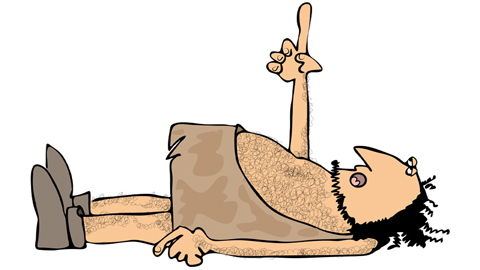
A paleolithic peer review
You might think review panels have only been around for the last century or so. You would be mistaken.

Early COVID-19 research is riddled with poor methods and low-quality results
The pandemic worsened, but didn’t create, this problem for science.

So, you went to a conference. Now what?
Once you return to normal lab life, how can you make use of everything you learned?
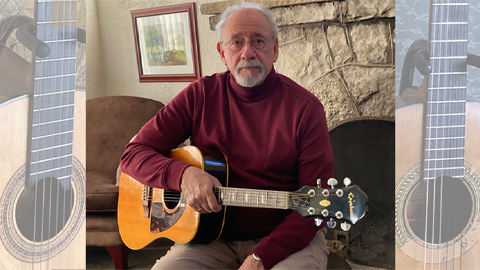
My guitar companion
A scientist takes a musical journey through time and around the world.
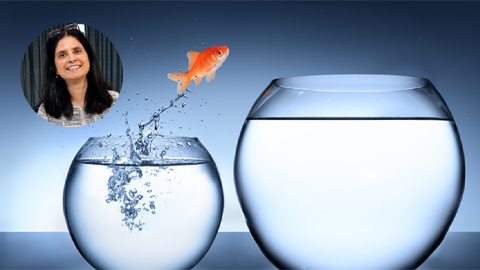
Catalyzing change and redefining purpose
To mark Women’s History Month, Sudha Sharma writes about her journey from focusing on her own research program to being part of a collaborative COVID-19 project.
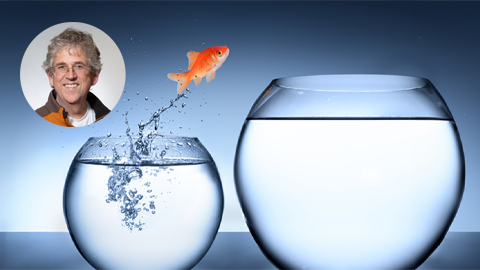
The power of sabbaticals
To mark Women’s History Month, Nicholas Rhind writes about learning techniques in other researchers’ labs that empower the work in his own.

